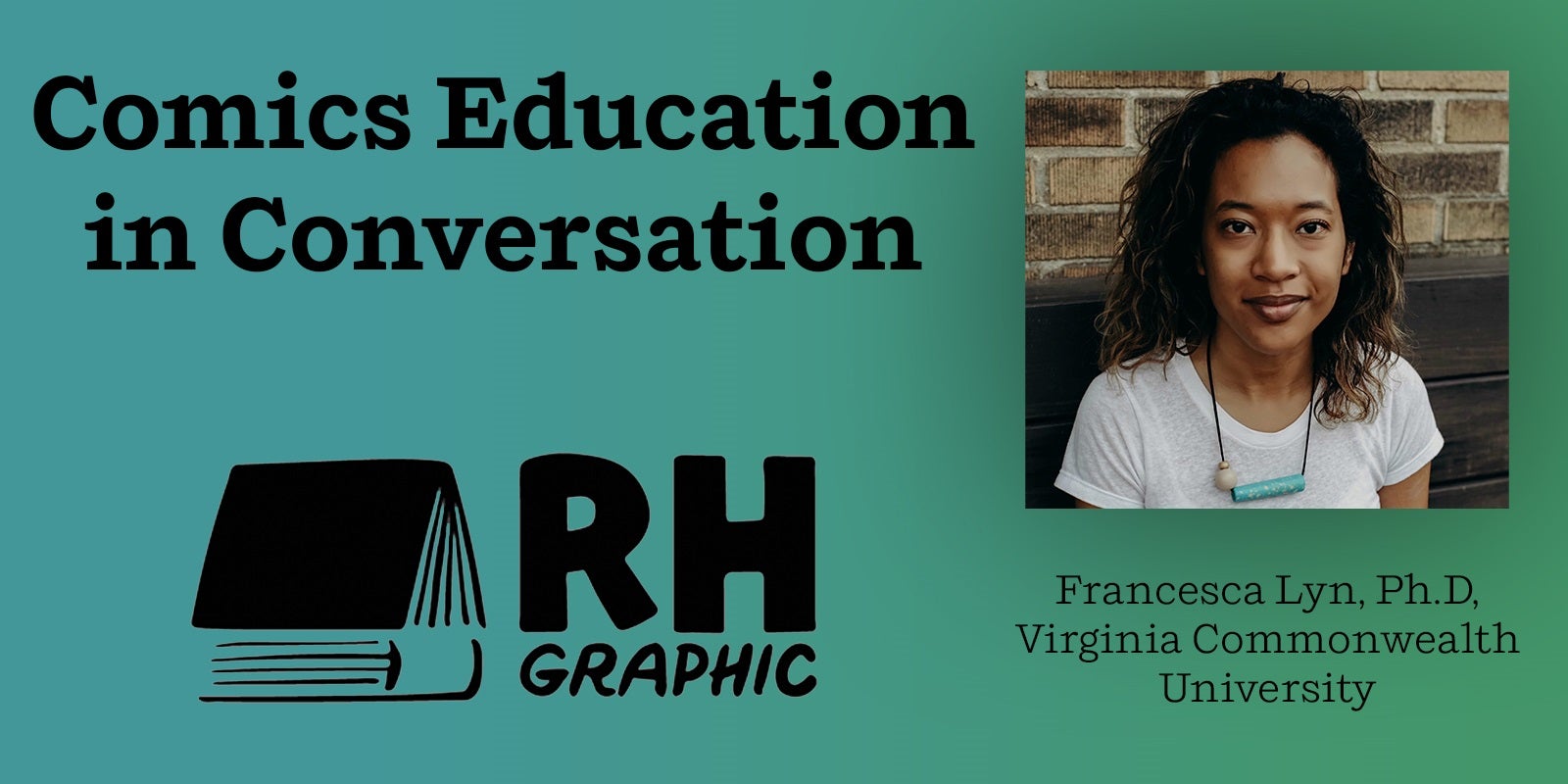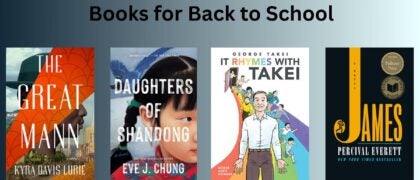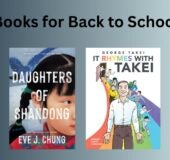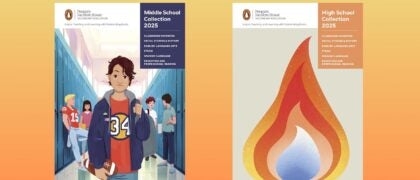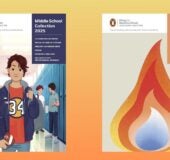Francesca Lyn, Ph.D., is an Assistant Professor in the Department of Gender, Sexuality and Women’s Studies at Virginia Commonwealth University. Dr. Lyn is a critical race and gender scholar whose current interdisciplinary research centers on how women of color depict their own lived experiences. Her project “The Fragmentary Body: Traumatic Configurations in Autobiographical Comics by Women of Color” was the recipient of the 2019 John A. Lent Scholarship in Comics Studies, an award presented by the International Comics Art Forum to a substantial research-based writing project about comics. She is the instructor of record for the self-designed courses, “Gender, Race and Comics” and “Gender in Comics.” Her teaching emphasizes the integration of lived experiences in scholarly inquiry. Dr. Lyn helped create Comic Arts Richmond, an independent small press comics show. She is also a member of the Small Press Expo’s executive committee and creates her own comics.
How did you get started reading comics?
Newspaper comic strips were my first introduction to comics. I love Peanuts and Calvin & Hobbes. Checking out comic collections from the public library. Archie comics were also an early favorite and very accessible as they were available for purchase in the check out aisle at Publix..
How did you get from your first comics-reading experience to doing academic work in the medium?
I began writing about comics in graduate school. In the past I have also written a tiny bit of comics journalism for places like Comics Bulletin.
Have you seen a change in the academic and/or popular reception of comics and graphic novels over the course of your career?
Yes. I am lucky enough to be part of a community of scholars that produces challenging work on comics. It has been thrilling to see more attention being brought to important work such as Adrienne Resha’s work on theories of comics periodization, making the compelling case that we are now in The Blue Age of Comics. She is incredible! I am also very excited by public scholarship on comics. Osvaldo Oyola’s The Middle Spaces consistently publishes some of the sharpest comics analysis and is available for everyone to read.
You’ve done academic work on gender, race, and comics, and on autobiographical comics. Can you tell us a little about that?
I am an Assistant Professor in the Department of Gender, Sexuality and Women’s Studies at Virginia Commonwealth University. My interdisciplinary research centers on how women of color depict their own lived experiences. My dissertation project “The Fragmentary Body: Traumatic Configurations in Autobiographical Comics by Women of Color” was the recipient of the 2019 John A. Lent Scholarship in Comics Studies, an award presented by the International Comics Art Forum to a substantial research-based writing project about comics. At VCU, I am the instructor of record for the self-designed courses, “Gender, Race and Comics” and “Gender in Comics.” My teaching emphasizes the integration of lived experiences in scholarly inquiry.
You’ve worked with the Small Press Expo, and founded Comic Arts Richmond. How do you see academia and pop culture/public spaces like these comics festivals coming together?
Small Press Expo has long been a place where amazing panels and presentations are given. Rob Clough, SPX’s Programming Director, does an incredible job curating some of the most exciting talks I have ever seen. Working with Rob has been really inspiring. Eventually Comics Arts Richmond would like to provide a similar platform for comics education.
You’re an academic, but you also write and draw your own comics. How do the academic space and the creative space come together for you?
Pretty much everything I learned about cartooning I learned from the Sequential Arts Workshop in Gainesville, Florida. While I do not necessarily see myself as someone producing comics in order to share them with the world, I consider drawing and writing comics a vital part of my pedagogy.
Additionally, while in graduate school I took a class called “Collaborating on Comics”, an interdisciplinary course team taught by Tom De Haven and Kelly Alder. This class paired writers with artists. We created original projects in teams. It was an amazing course that culminated in the creation of an anthology as well as an exhibition of the class projects.
There’s long been a call for increased diversity in comics – and that’s only gotten more prominent. What are you seeing changing in this space today?
Comics have long been made by many different types of people, it is exciting to see this being recognized. It is important to recognize how comics have always been made by people from marginalized identities, even if they are not always included within comics history. Miné Okubo’s Citizen 13660 (1946) chronicles her experiences in Japanese American internment camps during World War II. It’s one of the first longer works of graphic memoir as far as I can find.
People are paying more attention to diversity beyond it being a buzzword. I am seeing more people emphasizing the importance of an intersectional understanding of identity. I am seeing more attention given to the need for diversity in all aspects of comics – editors, publishers, booksellers.
Favorite or new graphic novel recommendations?
I think everyone should read Gabrielle Bell. Her most recent comic, Inappropriate is a series of short stories.
Lynda Barry is another perennial favorite. I feel like anything you read by her is tremendous.
I thoroughly enjoyed Gene Luen Yang’s Dragon Hoops.
SOCIAL MEDIA
Twitter: @francescalyn

